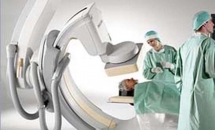The localisation and identification of genetic components involved in human pathologies is a basic objective of human genetics, and represents one of the essential priorities of biomedicine. For several decades, we have witnessed the development of multiple statistical strategies with this aim (such as linkage analysis and association studies), as well as a significant improvement in DNA sequencing and genotype techniques; all of these advances have represented significant progress in the search for the genes that are responsible for diseases. In this way, preventive and personalised medicine based on genetics is already a reality. Knowledge of the physiopathological basis and of the genetic factors involved in thromboembolic disease has benefited from these advances, by changing the conception that existed of this pathology.
The aim of this lecture is to summarise the current genetic knowledge of the risk of suffering from thromboembolic illness, and of the complexity that covering this entire field represents. It is a question of going beyond the risk factors and starting to consider and integrate risk profiles and to transfer this information to the clinical sphere.
Cycle: Challenges of the 21st Century, IV the Voice of Medicine, I
Organized by: Residence for Researchers, Fundació Clínic Barcelona, Institut Biomèdiques August Pi i Sunyer, Resa
